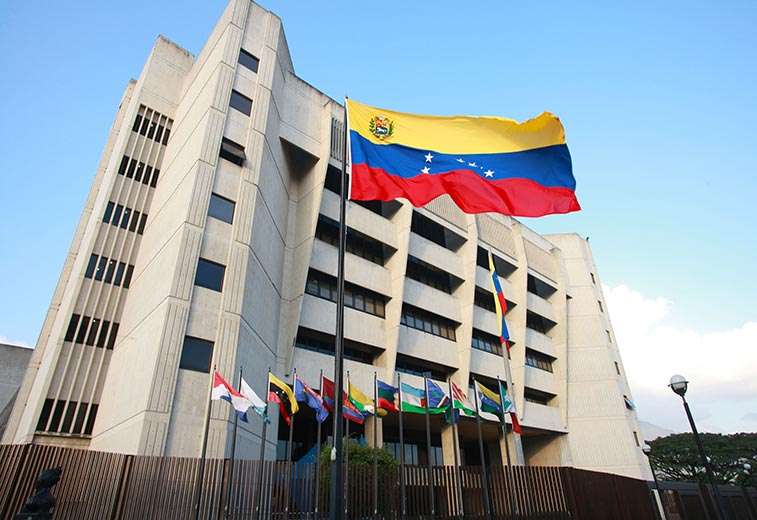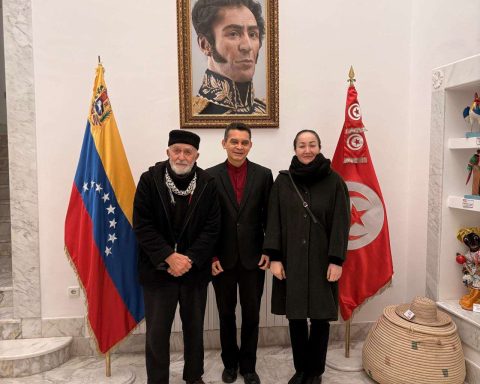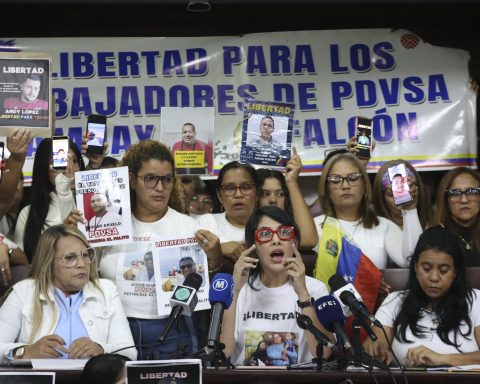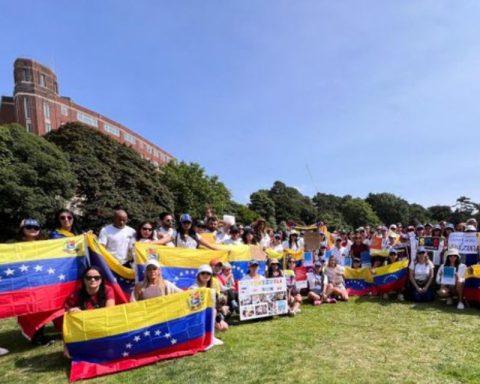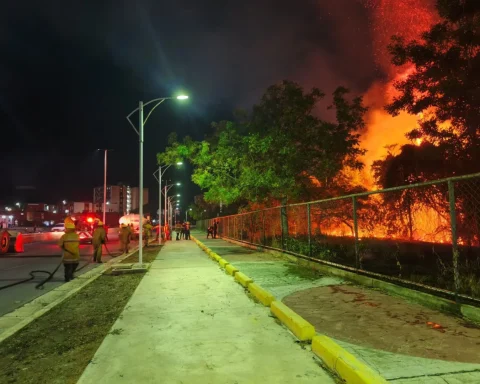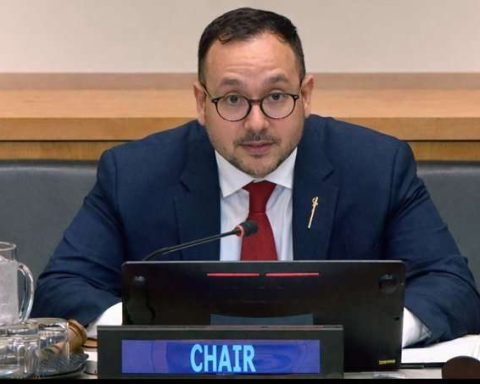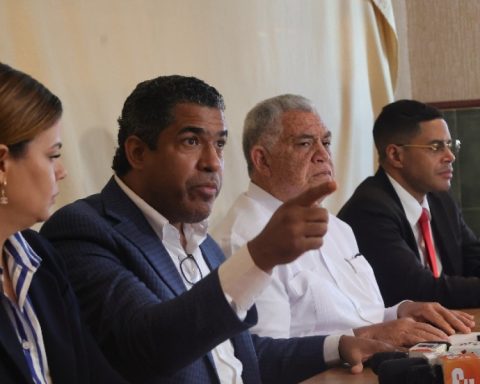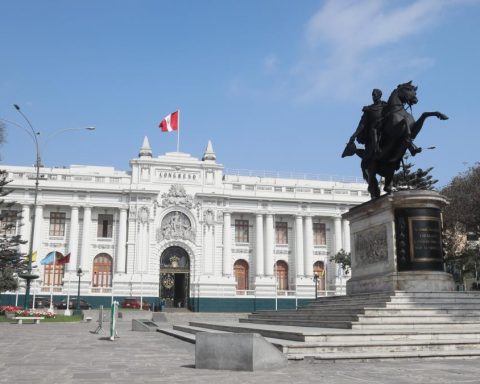In 2014, the Constitutional Court established a special procedure to punish with prison those who failed to comply with a court order. Those punished at that time were the mayors Vicencio Scarano (San Diego, Carabobo) and Daniel Ceballos (San Cristóbal, Táchira).
The Constitutional Court proved through separate trials that both mayors had violated a court order and consequently removed them from office and sentenced them to prison.
The first to be sanctioned for contempt was the mayor of San Cristóbal (Táchira), Daniel Ceballos. On March 17, 2014, the Constitutional Court ordered him to clear the roads in the aforementioned municipality that were blocked by violent groups.
At that time, the so-called guarimbas spread throughout various regions of the country after Leopoldo López (Voluntad Popular) had called for a La Salida (The Exit) on February 12 of that year “until we manage to get rid of those who govern us,” according to his words. This call was supported by María Corina Machado and Gabriel Puerta Aponte, among other opposition leaders to the government of Nicolás Maduro.
Eight days after that order, the Constitutional Court called for a hearing to verify whether Ceballos had complied with what they ordered him to do. That hearing was held on March 25, 2014, in Venezuela’s highest court.
“In this order of ideas, as it was definitively proven in the hearing held, the conduct displayed by citizen Daniel Ceballos falls within the factual assumption of the precept established in article 31 of the aforementioned Organic Law of Protection of Constitutional Rights and Guarantees, since he disregarded what this Court ordered him, in the sense of complying, according to the position he holds as Mayor, with what is established in article 178 of the Constitution and, finally, with the rest of the legal order that concerns them, among other things, that, within their effective powers and possibilities, he should guarantee unrestricted circulation on public roads located in the Municipality of San Cristóbal, that he should keep them free (along with their surroundings) of debris and waste; that he should act to prevent, control or assist in the control of violent actions deployed by groups of people.“, the Court determined in judgment 263.
The judges pointed out that Ceballos could not excuse himself by saying that he had left Sergio Vergara in charge as mayor.
Once the contempt of court was established, the judges dismissed Ceballos from his position as mayor of San Cristóbal and sentenced him to 12 months in prison.
The following month, the Constitutional Court made a similar decision. This time it was the decision of the mayor of San Diego (Carabobo) Vicencio Scarano, according to ruling 245 of April 9, 2014, signed by the magistrates Gladys Gutiérrez, Francisco Carrasquero, Luisa Estela Morales, Carmen Zuleta, Marco Tulio Dugarte, Arcadio Delgado and Juan Mendoza.
The complaint against the mayor of San Diego was filed by Salas & Agentes Aduaneros Asociados who saw their work, which involved traveling along the roads of the aforementioned municipality of Carabobo, being disrupted because they were blocked by barricades.
The amparo action was admitted on March 12, 2014 and in ruling number 136 the magistrates of the Constitutional Court ordered Mayor Scarano “to immediately remove the obstacles located on several public roads in the municipality, especially on Don Julio Centeno Avenue.”
On April 9, 2014, the magistrates summoned Mayor Scarano to a hearing to assess whether or not he had complied with the mandate issued a month earlier. The Court determined that Mayor Scarano had incurred in “omission of actions tending to prevent public disorders.” The head of security for the municipality of San Diego, Salvatore Luccese, was found to be in the same situation. Both were dismissed at that hearing and sentenced to 10 months and 15 days in prison, according to sentence 245.
When addressing both procedures, the seven magistrates of the Constitutional Court admitted that there was no mechanism to punish contempt and therefore established that it was built along the way.
“When the legal system does not prescribe a special process to be followed, the one that the Chambers of this High Court exclusively judge most convenient for the realization of justice will be applied, provided that it has a legal basis. (…) In short, criminal intervention, at least today, would be ineffective in the case of contempt of constitutional protection, (…) reason why, the procedure established here is the one that must be followed to verify contempt of constitutional protection (…) , and, if applicable, impose the sanction. (…)”, said the Court, whose judges made it clear that they respect the role assigned by the Constitution to the Public Prosecutor’s Office in relation to criminal investigations into facts addressed by that instance of the TSJ.
“The implementation of this procedure carried out in the exercise of the sanctioning power of the constitutional jurisdiction does not contradict the criminal jurisdiction of the Public Prosecutor’s Office, the criminal investigation police and the criminal jurisdiction.“, the judges clarify.
The magistrates consulted said that the jurisprudence of the Constitutional Court regarding the way of punishing a contempt of court order is still in force. In this regard, we commented that it involved two people in public office as a result of a popular election. “The same applies to those who do not hold public office but who participated in an electoral process, for example, organized in accordance with the provisions of the Organic Law of Electoral Processes,” he concluded.
